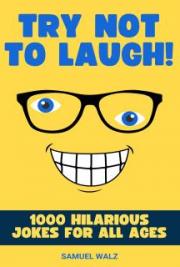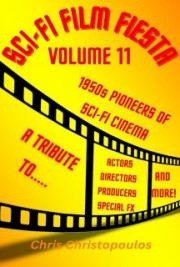VIII
Graduates, recalling their college life, tend to fall into two groups. One group see college as the happiest time of their lives—and why should they not? This group composes the backbone of the alumni associations, forever whoops it up for “dear ol’ Whatsis,” and proves the life of the party at alumni reunions, especially those where good liquor is poured out in the hopeless effort to make the man a boy again, while he stays a father too.
By the other group, college is recalled as a waste of time. The transition from the position of a kept and protected favorite child into that of a grown man under the imperative of having to earn his own keep has worked a disillusionment. Instead of getting the job he believes his degree entitles him to, he finds himself a superfluity in the labor market. Employers are likely to speak of him as bumptious, immature, undeveloped, a cub. He finds, even for the simplest tasks, either that he must unlearn what he has learned, or, if he is lucky, that he has no training at all. He begins to regret his college life and to consider that college has failed him. Thinking about it, as did Philip Wylie, he realizes that “the serious purpose” of college not only was not serious to him, but could not have been. For, as the New York boy found already in high school, the curriculum offers him no momentous living option. The subject matter is irrelevant to all that is dynamic in him, it lacks vital links with both the passions of his heart and the actual world where, after college, he must live and move and have his being. It is presented mostly by persons to whom teaching is as much a disagreeable penalty for the amenities of “scholarly” life as learning is to the student for the amenities of college life. Hence, the student seeks to pay the minimum penalty, which is to pass his examination by any means whatsoever. Sometimes the disillusion rises during undergraduate years. Then there are editorials in the college papers. Administrations are criticized, professors are graded, courses are scored, abuses are denounced. Deans and faculties squirm and are glad when the student interest in education subsides. Fortunately such bursts of interest are rare interludes. For the most part, it is faculties, not students, who are agitated about education.
And why should students be agitated about anything still so monastic, that isolates nearly all of those who enter upon it from the realities among which they expect to spend their lives, and sustains them in a state of irresponsibility and irrelevance? At an age when body and mind cry out against infancy, “the higher education” prolongs infancy; it sets up and maintains a conflict between psychobiological adulthood and social childishness. In this conflict “college life” has its fertile soil. It nourishes all those psychological expressions which fall into the patterns of undergraduate attitudes and behavior that are designated by the word “collegiate.”
An apt example of what “collegiate” has come to mean in these United States broke into public view during the fall of 1931. The occasion was an article from the pen of the editor-in-chief of the Spectator, which is the student daily paper at Columbia University in New York City. The article was a serious and intelligent endeavor by a student whose social maturity had by some stroke of chance kept pace with his physiological adulthood, to deal seriously with the realities of athletics, especially football, at Columbia. It called for the public recognition of football as the professional vocation it actually is, and for ordaining coaches as reasonably-paid instructors and not as super-salaried dictators. Of course the response was anger, denunciation, threats against the writer. Among the commentators was the alumni secretary. “The editorial is nonsense,” he said. “The matter is complicated but there are lots of reasons why the head football coach should get a larger salary than a professor. The editor of the Spectator is too serious-minded. He should be more collegiate.”
So standard is this usage of “collegiate” that the very students whose habits sustain it, admonish each other: “Oh, don’t be so collegiate,” and in one of the women’s colleges—women’s, nota bene—“Don’t be collegiate” is a commandment which upperclassmen deliver from the Sinai of their seniority to freshmen entering.
But so long as colleges are managed as they are managed, and college teaching continues as and what it is, it is impossible that students should not be, in one form or another, collegiate—that is, adults conducting themselves like children. For social adulthood consists in self-support and self-management, in moral responsibility and intellectual integrity. These are facilitated by physiological maturity but are by no means identical with it. Physiological maturity comes as an instinctive ripening, in the course of nature. Social adulthood is a learned mode of behavior in the social environment; a system of habits acquired, not a state of the body grown into. This is why bodies may grow up and grow old while minds and hearts remain infantile. And this is why adulthood cannot be learned in colleges as they are any more than swimming can be learned on dry land; the medium is too different, too alien. This is why such academic reformations as those at Harvard or Wisconsin or Chicago are futile jugglings of the same pieces, whereas what is required are new materials and new forms. Antioch comes closer to putting the student on his own as a self-supporting, self-managing adult, but in Antioch the work on the job and the classes in the college are far from the interfusion they require. Nevertheless, Antioch points the hopeful direction of change for colleges that desire to stop prolonging infancy and to begin educating adults.







